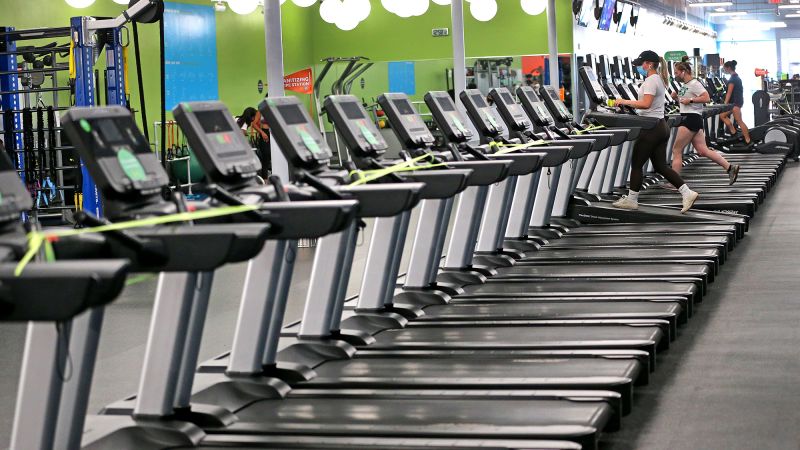The affordable gym chain Blink Fitness has filed for bankruptcy, potentially leading to the closure of an unspecified number of its 101 clubs. Owned by the luxury gym chain Equinox, Blink offers monthly memberships ranging from $15 to $45 and is primarily located in cities and suburban areas in New York, New Jersey, California, and Texas. With over 400,000 members, Blink’s bankruptcy reflects the ongoing challenges faced by the fitness industry, particularly in the wake of the Covid-19 pandemic.
During the pandemic, roughly 25% of US gyms and studios permanently closed, amounting to around 10,000 facilities, as reported by the Health & Fitness Association. Major chains like 24 Hour Fitness and Gold’s Gym also filed for bankruptcy, underscoring the financial strain caused by the closure of gyms and lack of revenue during the lockdowns. Blink, which temporarily closed all of its clubs during the pandemic, still faces financial constraints from deferred rent payments and unprofitable clubs.
Experts suggest that the fitness industry is still grappling with the impact of the pandemic, experiencing growing pains as it navigates through a changing landscape. Rick Caro, president of fitness industry consulting firm Management Vision, notes that the industry is in a period of transition and is likely to face further challenges as consumers adjust their discretionary spending habits post-Covid. Additionally, the rise of GLP-1 drugs used for weight loss presents a new challenge for the industry.
Luxury gyms like Life Time and Equinox are adapting to the changing dynamics of the fitness industry by incorporating weight loss clinics and tailored exercise programs for individuals taking GLP-1 medications. These medications have shown to be highly effective for weight loss, prompting gyms to introduce specialized programs to cater to this segment of the market. As the industry continues to evolve, gyms are exploring new ways to attract and retain members in a post-pandemic world.
The closure of affordable gym chains like Blink Fitness underscores the financial strain faced by the fitness industry in the aftermath of the pandemic. With a significant number of gyms permanently closing and major chains declaring bankruptcy, the industry is in a period of transition as it adapts to new consumer behaviors and challenges. As luxury gyms explore innovative solutions like partnering with weight loss clinics, the fitness industry is likely to see further changes in the coming years. Despite the challenges, there is potential for growth and evolution as gyms seek to meet the changing needs of their members in a post-Covid world.















